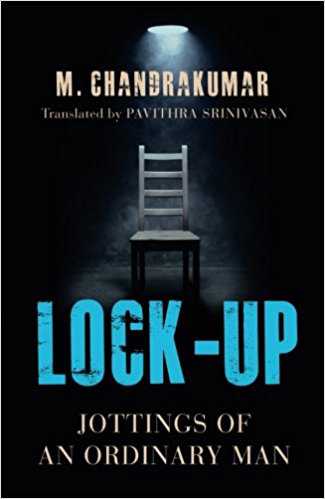The diary of an innocent prisoner
Jayanti Roy
This is the third edition of this slim volume, first published in 2006. A first person account by a Coimbatore-based auto driver M Chandrakumar, it has won the Best Document of Human Rights’ Awards.
One day, N. Chandrakumar (20), a semi-literate orphan working at a roadside tea stall, is taken away by the police along with three other boys. They are tortured for days so as to make them confess to a theft they never committed. The prisoners are dumped into a damp, stinking, dark room, sometimes 21 persons in a space of 10X10. Gradually, their emotions change from hope to disbelief to anger, to helplessness, to revenge and finally giving up on life.
The novel shows that the orphans, the marginalised and the have-nots are usually easy targets for the system. In fact, conveniently for their oppressors these people are unaware of the concept of human rights. And such people also never write their prison diaries, let alone publish them.
But the protagonist Chandrakumar challenges this assumption and we get to hear the tale of his remaining human despite facing inhuman conditions. He never confesses to his alleged crime, though his other three friends buckle down. His maturity is reflected in the fact that he never blames the police for his sufferings but warns that such unlimited authority leads to ‘humanity being swept out of reach of society, like a lifeless corpse upon a river’.
This is the documentation of stripping of a human being of his basic freedom. The section to which the author belongs remains mute and cannot tell their own stories because of the lack of means. They are also invisible and are never factored in the discourses or the consciousness of the so called civil society. That is why Lockup should be read by every citizen so that we never forget our brethren who give up not because they are culprits, not because they cannot handle torture but because of apathy of fellow citizens who choose to look away.










